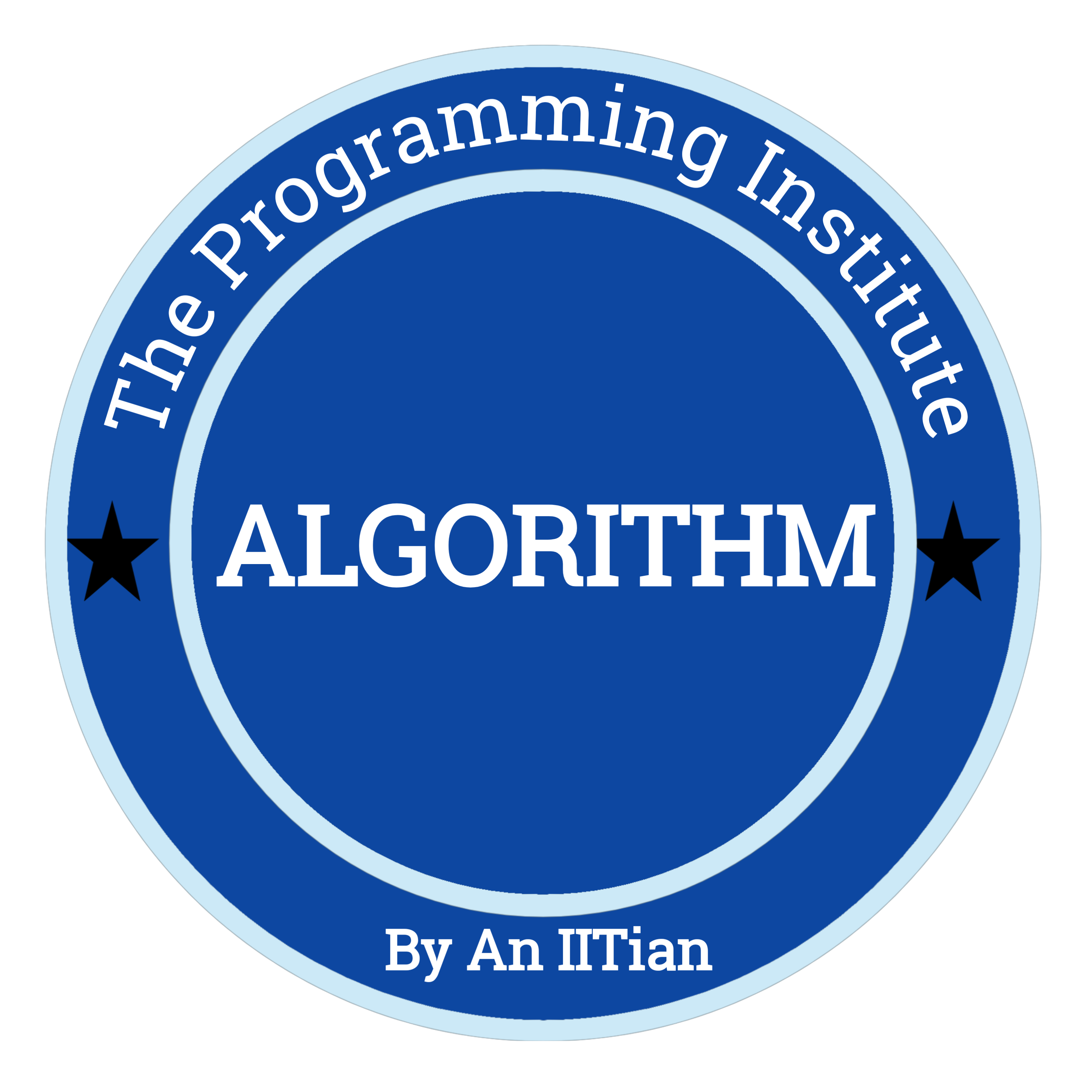Core Java
Core Java Training in Hyderabad course. Algorithm Class is a perfect training institute with practicals .
Core Java training in Hyderabad. The java can be used to develop software and also applets.
In other words,Algorithm Class is one of the best institutes for core java in Hyderabad. Specifically, the trainers are highly qualified. Thus, the trainers are with 15+ years of real-time IT experience. Moreover, the class consists of more practical sessions.
Furthermore, Core java training course covers topics from beginner level to advanced level.
Most noteworthy, Algorithm Class is one of the most reputed Java Training Institute in Hyderabad.
What are the Pre-Requisites of this course?
We recommend prior knowledge on any other programming.
Why Algorithm Class for Java Training In Hyderabad
- Assignments: Every class will be followed by practical assignments.
- More and more programming in the regular classes.
- Instructor-led Live Sessions.
- More programming than theory in everyday class.
- Flexibility to attend online/ class room.
Algorithm Training Institute is one of the best institutes for java in Hyderabad. Java training in Hyderabad at Algorithm covers topics from beginner level. Finally, by the end of Core Java Course in Hyderabad provides confidence.
Course Details:
Note: This course is for the students with basic knowledge on any other programming language.
Duration: 4 weeks
Time : 7.30am or 8.30am or 6.30 pm
Mode : class room
Study Material: Yes
Project : Yes
Course Fee:Contact Us
Demo:
Trainer Details:
Core Java Course Content
Download Course Content here Core-Java-Training-Institutes-in-Hyderabad-Algorithm.pdf (420 downloads )
1. Introduction:
1. Java History
2. Differences between java and others 3. Java Features
4. Java Naming Conventions
5. Java Programming Format
2. First Java Application Development: 1. Java Installation
2. Editor
3. Java Application and Java File Saving. 4. Compile Java File
5. Execute Java Applications.
3. Language Fundamentals: 1. Tokens
2. Identifiers
3. Literals
4. Keywords /Reserved Words 5. Operators
4. OOPS:
1. Types of Programming Languages
1. Unstructured Programming Languages
2. Structured Programming Languages
3. Object Oriented Programming Languages 4. Aspect Oriented Programming Languages
2. Object Oriented Features 1. Class
2. Object
3. Encapsulation
4. Abstraction
5. Inheritance
6. Polymorphism
7. Message Passing
3. Object Based PL VS Object Oriented PL 4. Class syntax
5. Method Syntax
6. Var-arg method.
7. Accessor Methods VS Mutator Methods 8. Syntax to create an object
9. Immutable Objects VS Mutable Objects 10. Object Vs Instance
11. Constructors
1. Default Con.
2. User defined con.
CORE JAVA
1. 0-arg-con.
2. Param-con. 12. Instance Context
1. Instance variable 2. Instance method 3. Instance block.
13. This keywords
1. To refer to the current class variable. 2. To refer to current class methods.
3. To refer to current class blocks.
4. To return current class objects.
14. Static keyword
1. Static variable
2. Static method 3. Static block 4. Static import
15. Main () method
1. Public static void main (String [] args)
2. Why public?
3. Why static?
4. Why void?
5. Why main
6. Why String [] as parameter?
7. Is it possible to overload main (-) method?
8. Is it possible to override main (--) method?
9. Is it possible to provide more than one main (--) method with in a single java appl?
10. Is it possible to execute any java application without using main method?
16. Factory Method
17. Singleton classes and Doubleton classes 18. Final Keyword
1. Final variable 2. Final method 3. Final class
19. Enum keyword
20. Relationships in JAVA
1. IS-A Vs HAS-A Vs USE-A 21. Associations in Java
1. one-one
2. one-many 3. Many-one 4. many-many
22. Inheritance and Types of inheritances
1. Single
2. Multiple
3. Multilevel
4. Hierarchical 5. Hybrid.
23. Static flow in inheritance 24. Instance flow in inheritance 25. Super keyword
26. Class level type casting
27. PolyMorphism
1. Static PM
2. Method overloading 3. Dynamic PM
28. Method overriding
29. Abstract Methods Vs Concrete Methods 30. Abstract class Vs concrete Class
31. Class Vs Abstract class Vs interface
32. "Instance of" operator
33. What is Adapter class?
34. What is the marker interface?
35. Object Cloning
1. Shallow Cloning
2. Deep Cloning
36. JAVA8 features in interfaces
5. Inner classes:
1. Member Inner class
2. Static Inner class
3. Method local Inner class 4. Anonymous Inner class
6. Wrapper classes: Byte,Short,Integer,Long,Float,Double, Boolean, Character 7. Packages:
1. What is a package? 2. Adv. of packages
1. Modularity 2. Abstraction 3. Security
4. Reusability 5. Shareability
3. Types of packages
1. Predefined packages
2. User defined packages 4. Jar files preparation
5. Executable Jar files
6. Batch files preparation
8. String manipulations: 1. String
2. String Buffer
3. String Builder 4. String tokenizer
9. Exception Handling:
1. Error VS Exception
2. Exception Def.
3. Types of Exceptions
1. Predefined Exceptions
2. User defined Exceptions
4. Checked Exception VS Unchecked Exception
1. Pure Checked Exceptions
2. Partially Checked Exceptions 5. Throw Vs throws
6. try-catch-finally
7. Custom Exceptions
8. Java7 Features in Exception Handling
1. Automatic Resource management
2. Multi catch block. 10. Multi-Threading:
1. Process Vs Processor Vs Procedure
2. Single Processing Mech. Vs Multi Processing Mech. 3. Single Thread model And Multi Thread Model
4. Thread Design
1. Extending Thread class
2. Implementing Runnable interface. 5. Thread lifecycle
1. New/Born 2. Runnable 3. Running 4. Blocked 5. Dead
6. Thread class library 1. Sleep ()
2. Join () 3. Yield () 4. Stop ()
7. Daemon Thread
8. Synchronization
9. Inter Thread communication
1. Wait ()
2. Notify () 10. Deadlocks
| SNO | Topic | Sub topic | Programs in class |
|---|---|---|---|
| 1 | Introduction | why java
diff b/w java and others history features statements data types arraya |
|
| 2 | opps |
introductionclass object satic key words constructors this key word inheritance super key word polymorphism abstraction tncapsulation abstact class interface
|
|
| 3 | string manipulation | string
buffer builder string tokenzier
|
|
| 4 | exception handlingg | introduction
pre-defined exceptions try-catch-finally throws,throw user defined exceptions |
|
| 5 | multi-threading | introduction
thread creation thrd life cycle life cycle methods synchronization wait(),notify(),notify all(),methods |
|
| 6 | I/o streams | introduction
byte-oriented stream character-oriented streams file serilization and deserilization |
|
| 7 | wrapper class | introduction
byte,int,char,boolean,double,float etc |
|
| 8 | collection frame work | introduction
list inter face set interface map interface |
|
| 9 | JDBC | introduction
connectivity steps sample examples |


